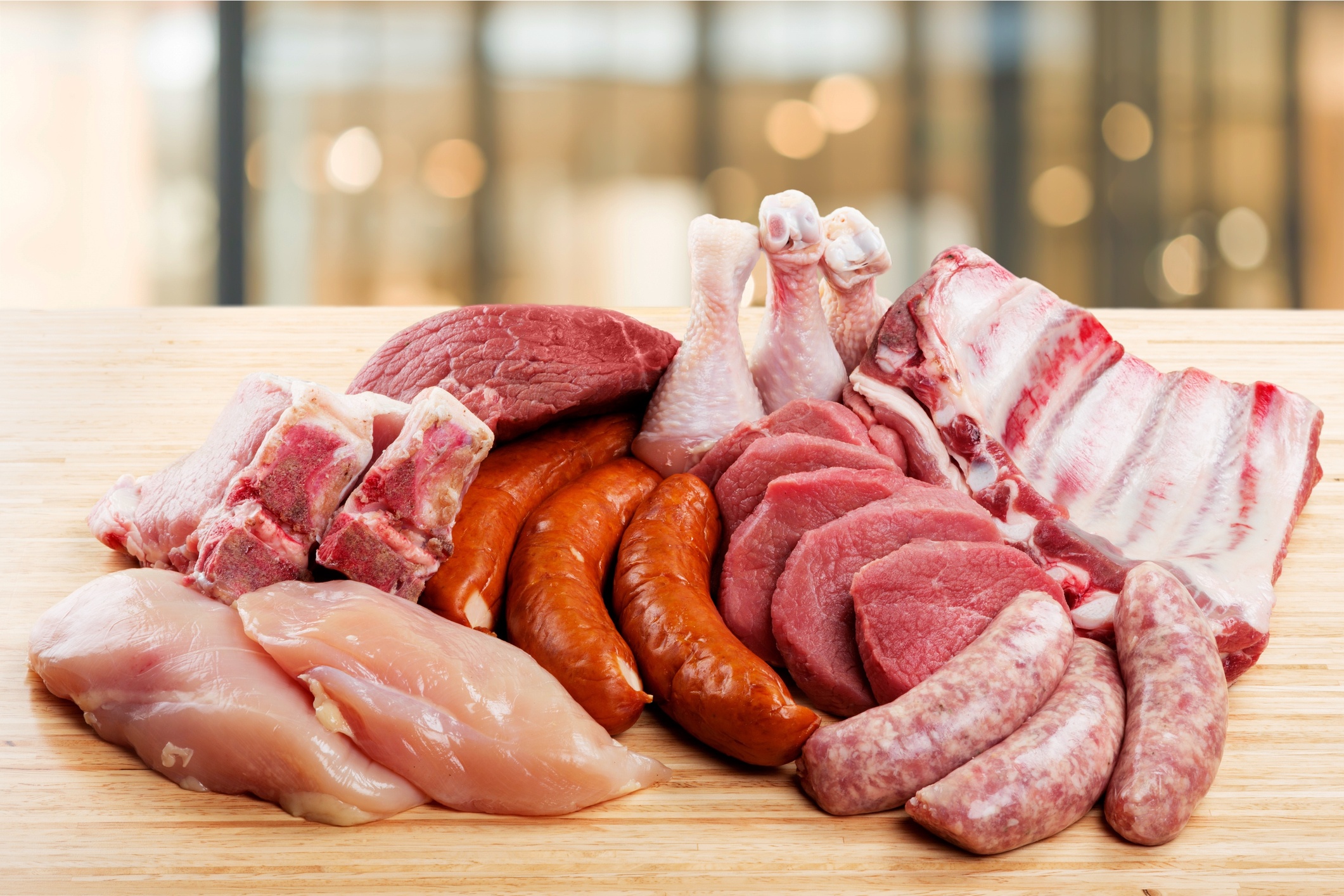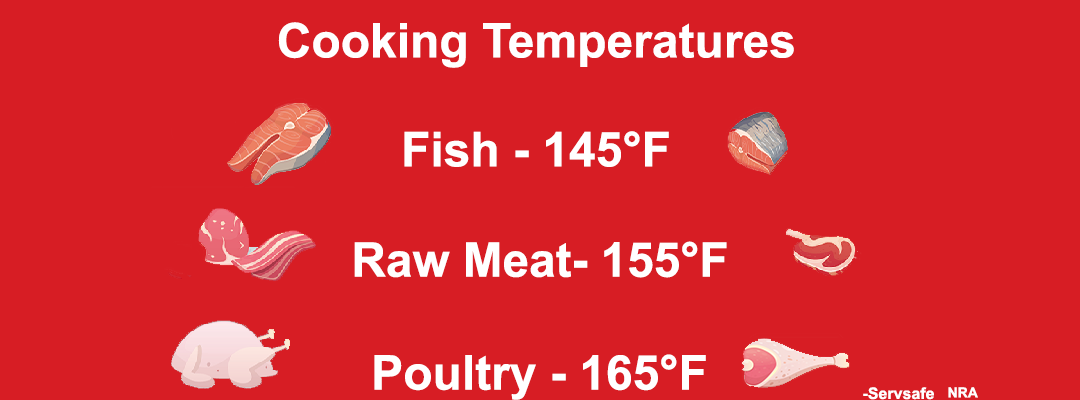When storing raw meat, it is imperative that certain precautions are made to ensure the safety of that product and all the products around it. To do this, use the three rules below to store raw meat in your restaurant’s cooler properly.

How to Store Raw Meat in Your Restaurant's Kitchen
Rule #1 – Wrap Food Properly
Prevent Cross-contamination – Cross contamination is likely when raw meat is left open. Not only can the meat itself be contaminated, but juices from the meat may contaminate other foods. When wrapping meat, make sure you are doing so with the proper materials and tools for efficient storage
KISS- Keep it safe & secure – When storing raw meat, it is essential to ensure that the meat and the products around the meat are kept safe. All of that is centered around how well it is wrapped. Whether using lids or cellophane, make sure that the raw meat is wrapped in a way that will prevent leaking to ensure the food around it remains untouched. How can you do that? Make sure that cellophane wrap is secured tightly around your pans, if using a lid, it might be beneficial also to use cellophane wrap under the lid to help keep the juices under control.
Marination remarks – If your restaurant operation requires the marination of raw meats, it is likely that you are required to store these meats covered in stainless steel or plastic pans as it marinates. This can be especially tricky because of the extra weight added to the containers by a liquid marinade. To help; keep things secure while marinating, use extra cellophane wrap. An additional layer of the wrap could help better secure the contents if they were to tip. Also, put a lid on it! The extra layer of protection is a perfect way to ensure the safety of your dishes.
What is this? – If this phrase has ever been used in your cooler, you have a problem. All foods should be appropriately marked with the name, date it was made, and the use- by date to ensure the safety of your customers and help keep your cooler organized and efficient.

Rule #2 – Keep it Clean
A clean kitchen is a happy kitchen. Not just a phrase from your grandmother, or a mildly terrifying lesser-known alternative rock band.
Hands-on Safety – When preparing any foods it is vital that your hands are clean( even if they are under gloves). To do this, wash your hands using an anti-bacterial, commercial- grade soap for 20 to 30 seconds. For a reference, to achieve that timing it would be the equivalent of singing happy birthday in your head twice. Also, if you can wear disposable food- preparation gloves, this will help ensure that your hands won’t contaminate the meat.
Set a Designated Area for Raw Meat Prep – Raw meat contaminates everything it touches, while not being stored in a container. So, only work in an area where raw meat won’t come into content with other items. For example, do not wrap or cut raw meat in an area designated for chopping vegetables. All cutting utensils, cutting boards, countertops, and other objects that come into contact with raw meat must be safely and effectively washed in hot water with commercial- grade soap and sanitized to ensure safety.
Rule #3 - Store Correctly in Cold Storage
Store Safe and Smart – Raw meat goes in a specific place in your cold storage. With all meats, seafood, poultry, and other cold storage items, there is a hierarchy of how items must be placed on shelves. Raw meat should go below-prepared foods, fruits and vegetables, and fish and seafood, and it should go above ground meat and poultry. This is based on the safe cooking temperatures of items to ensure the safety of diners, as you go further down you shelving unit, the cook temperatures of the items go up.
Why Are Storage Guidelines So Particular When It Comes to Raw Meat?
Raw meat can grow many types of bacteria, viruses, yeasts, and molds, which can all cause illness and can even lead to death. Naturally, there are safety issues with all types of food, and vegetables and fruits can become harmful in some situations as well. But meats — and especially raw meats — pose unique threats.
Here are some of the diseases that may be associated with meat:
- E. coli
- Scrapie
- Salmonella
- BSE (bovine spongiform encephalitis)
- Trichinosis
All of these illnesses can come from meat and can cause terrible symptoms, which sometimes lead to hospitalization or even death.
Keep Your Commercial Kitchen Safe with Metro
If you want a healthy kitchen, the guidelines above are a great place to start. These guidelines will not only keep you and your staff from receiving harsh health code violations, which could severely hurt your business, but they will keep your customers safe, healthy, and happy.
In addition to following these meat storage guidelines, it's also important to ensure you're using the right equipment for storage and preparation. And that's where we come in. Our foodservice solutions, such as our MetroMax 4 polymer shelving and TableWorx stainless-steel worktables are designed to help you you maintain a clean and efficient kitchen environment.
Ready to create a safer, more organized workspace for your staff and customers? Visit our website to view our full range of products designed to meet the highest standards of commercial kitchen safety and efficiency.
